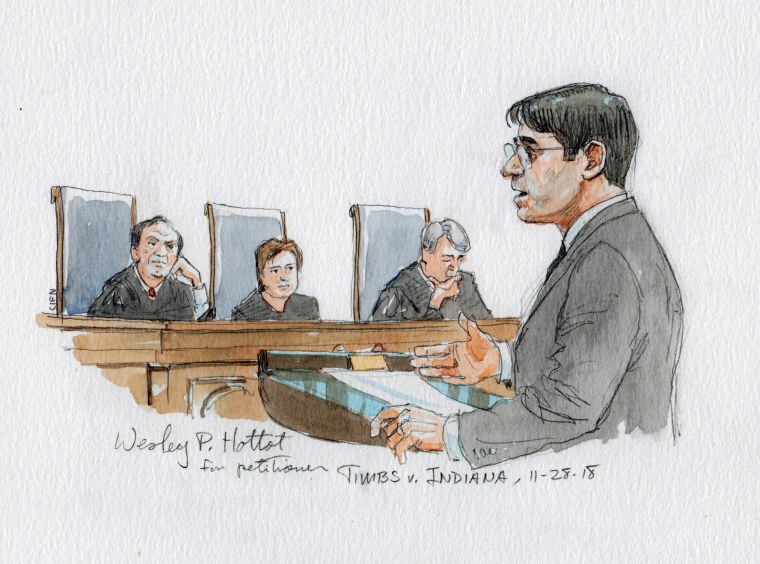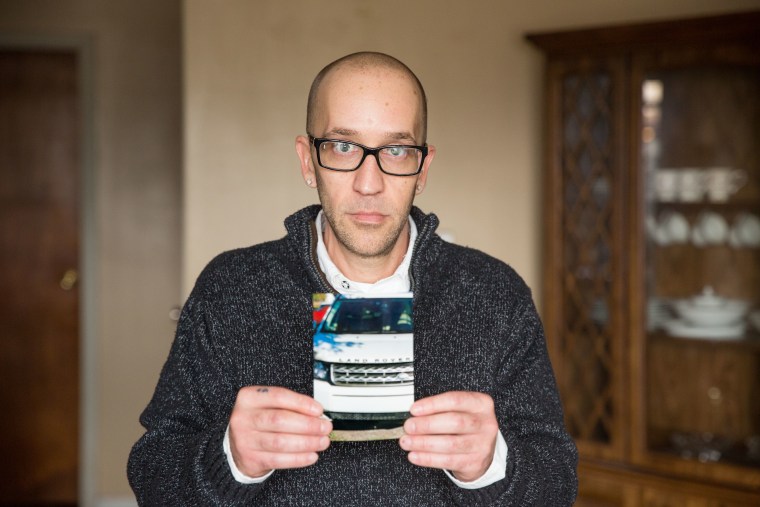WASHINGTON — A majority of the U.S. Supreme Court on Wednesday seem ready to rule that the U.S. Constitution's ban on excessive fines applies to the states, not just the federal government.
That would be a victory for Tyson Timbs of Indiana. Police took away his expensive Land Rover SUV after he was convicted of selling heroin to undercover police officers.
Although the 8th Amendment bans excessive fines, the Supreme Court has yet to explicitly say that it applies to the states, a process called incorporation. But some justices indicated during Wednesday's oral argument that they considered that already accomplished as a practical matter.
"Here we are in 2018 still litigating incorporation of the Bill of Rights. Really? Come on, General," Justice Neil Gorsuch said to Indiana Solicitor General Thomas Fisher.
The 8th Amendment's other two restrictions, forbidding cruel and unusual punishment and banning excessive bail, were previously declared to restrict state as well as federal authority.
"The freedom from excessive fines applies to the states, because it is deeply rooted in our nation's history and traditions and fundamental to our scheme of ordered liberty," said the lawyer for Timbs, Wesley Hottot.
A majority of the court seemed to agree. Justice Stephen Breyer asked Fisher if police could seize the car of someone caught speeding. "What is to happen if a state needing revenue says anyone who speeds has to forfeit the Bugatti, Mercedes, or a special Ferrari, or even jalopy?"
Those cars could be seized, Fisher said.

Timbs became addicted to an opioid prescription for persistent foot pain. When that supply ran out, he turned to drug dealers and eventually to heroin. To pay for his addiction, he began dealing heroin and was arrested after he twice sold to undercover police officers.
The police said he used his car to facilitate the drug deals — a $42,000 Land Rover that he bought with money he received from his father's life insurance policy — and the state instituted a forfeiture lawsuit to take it away from him.
Timbs fought to keep the vehicle, and the trial judge said the punishment of losing his car would be "grossly disproportionate" to the seriousness of his offense, given that the value of the Land Rover was more than four times the maximum fine for the drug conviction. But the Indiana Supreme Court reversed, holding that the Constitution's ban on excessive fines doesn't apply to the states.
Indiana argued that even if the ban on excessive fines applies to the states, the restriction should involve only personal fines that a person has to pay, not on the seizure of property used to commit a crime.
Civil liberties groups, led by the ACLU, urge the court to rule for Timbs. They say the past 30 years have bought an unprecedented rise in fines, fees, and forfeitures "driven by a quest to generate revenue and to fund state and local justice systems."
With such an increase in forfeitures, Justice Sonia Sotomayor said "many of them seem grossly disproportionate to the crimes being charged."
The court will issue its decision by the end of the term in late June.

